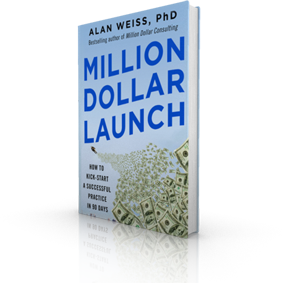
| |
Volume 5 Number 11 | November 2015Mind Your MindsetI've learned that the way we arise in the morning hugely influences our day, and the way we retire in the evening hugely influence our sleep. There have been countless pieces of research about the power of the unconscious mind, and the ability to come up with solutions to even a complex issue by "sleeping on it." But that unconscious mindset also operates during the day. When you awake, try taking 30 seconds to tell yourself what you intend to accomplish during the day as your top priority. Review quickly why it's important and how you're capable of doing it. When you retire at night, take 30 seconds to reflect on something positive that happened that day that you were either responsible for or the recipient of. Some people do this with meditation, some with a prayer of thanks, some with simply a brief recitation. There are people who awake thinking they have a long, slow crawl through enemy territory, and who go to sleep dreading the next day of struggle. But then there are also people who awake with confidence and zest for the new day, and who go to sleep reminding themselves of how much they've accomplished. You can be either person. Personal ChoicesThese factors and dynamics are completely within your control. They are not dependent on others. It's you choice whether, arriving at your kid's soccer game late, you feel guilt for not having been there from the beginning or you're thankful that you're there at all. You may decide that a "no" from a prospect is a defeat, or a wonderful learning opportunity. Your mindset is personal and manageable. Outside of calamity and trauma (and, often, even then, though that's not my topic this month), you can make what you choose to out of your days. What you tell yourself informs your behavior. The way you behave will influence others about how to respond. At my 2016 Thought Leadership Conference, Dan Gilbert of Harvard will be my special guest. He has studied the salutary effects of "synthetic happiness" and has concluded that people who make the best of the situation (e.g., "Being fired was the best thing that ever happened to me," or "That accident turned my life around") are genuinely happier than others who merely find joy in major life events (births, anniversaries, holidays, etc.). Simple ActsThe very simple act of reminding yourself how beneficial your day was and how promising it's going to be is a major "self-intervention" in your improved state. Try it for a week, and see if it makes a difference. My dogs view each new day with great relish. They don't dread anything. They sleep soundly at night. They always find something fascinating to do in the same yard. I'm not sure what they're telling themselves, but it seems to work. © Alan Weiss 2015 Change the Life You Have Into the Life You Want: http://www.alanweiss.com/store/online-learning/how-to-change-the-life-you-have-into-the-life-you-want/ You can obtain twice-monthly video programming for a year, access to me by phone and email, and a free day in Boston (which will be taped). Make your Million Dollar Mindset a reality. |
|



